Hotels
Motel Automat
Posted By: Paul - Fri Feb 07, 2025 -
Comments (0)
Category: Inventions, Shopping, Hotels, 1960s, United Kingdom
World’s Deepest Hotel
You can also read an article at ARCHITECTURAL DIGEST.
Posted By: Paul - Wed Jan 15, 2025 -
Comments (1)
Category: Excess, Overkill, Hyperbole and Too Much Is Not Enough, Caves, Caverns, Tunnels and Other Subterranean Venues, Hotels
Hotel Automat
Posted By: Paul - Sun Dec 19, 2021 -
Comments (4)
Category: Inventions, Technology, Hotels, 1960s
The Lunar Hilton
Back in 1967, as the first landing on the moon approached, Hilton prepared plans for opening hotels in space. They envisioned first opening an Orbiter Hilton, soon to be followed by a Lunar Hilton.Details from an article in the Boston Globe (July 20, 1969):
Hilton said the three floors will eliminate elevators and should minimize power requirements. Multi-story underground moon hotels will come later.
Guest rooms will have wall-to-wall television for closed circuitry views of space and to receive programs from earth. A nuclear reactor kitchen will prepare dehydrated freeze dry foods. Cleaning will be done by small laser units.
The Lunar Hilton's most popular spot will probably be the Galaxy Lounge where thermopane windows will provide a view of outer space and earth. Pre-measured, pre-cooled, "instant" drinks will be served by push buttons.
Hilton even created a key for a room in its lunar hotel and printed up a form so that people could book a reservation.
More info: CNN Travel
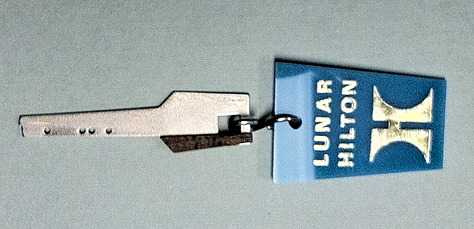
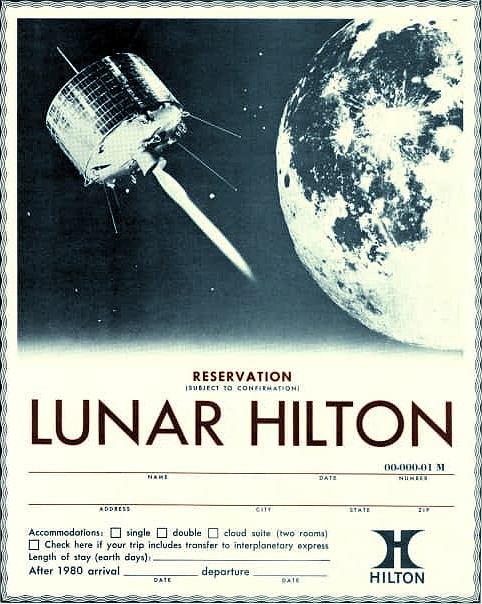
Posted By: Alex - Mon Jul 05, 2021 -
Comments (3)
Category: Hotels, Space Travel, 1960s
Exit Traveler Rescue Kit
The Exit Traveler came on the market in the late 1980s. It was designed to let hotel guests rappel out of their window in the event of a fire.Of course, you had to carry the thing around in your luggage, on the off chance that you got stuck in a burning building and the stairs were inaccessible. Then you had to find something to anchor the device to. And it was one-use only. Perhaps why it never caught on.
Seems that the inventors also tried to get hotels to pre-install them in rooms, anchored to walls. But the hotels probably had visions of guests rappelling out of windows even when there wasn't a fire.
More info: Exit Traveler
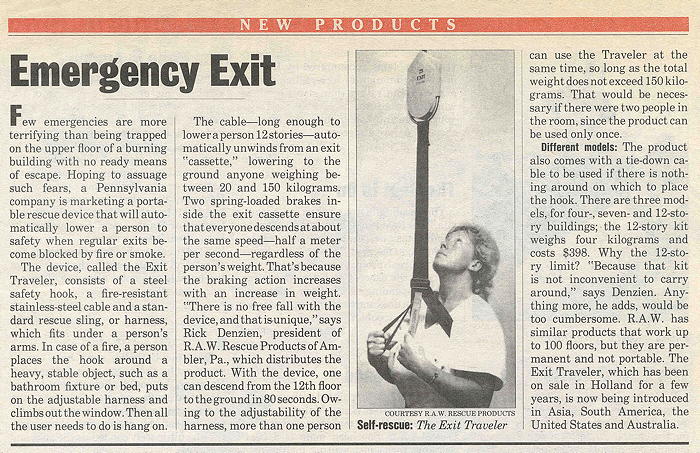
Newsweek - Oct 26, 1987
Posted By: Alex - Sat Mar 20, 2021 -
Comments (4)
Category: Inventions, Hotels, 1980s
The Azulik Hotel, Mexico
Their website.
Posted By: Paul - Sun Dec 13, 2020 -
Comments (0)
Category: Aliens, Architecture, Regionalism, Avant Garde, Hotels, North America
Frustration Room
In 1962, the Imperial Inn in Chicago opened a “frustration room.” It was a room that people could rent to vent their frustrations. They were supplied with dishes, lamps, furniture, and light bulbs, and they were invited to hurl these against the wall of the room. On the wall were pictures of policemen and politicians, among other things. The hotel manager noted, “there is a chance that someone might get carried away, and unwind so far that he needs to wind himself back up again. So as a special precaution we have a straight jacket available for anybody who goes berserk.”
Pittsburgh Press - Aug 19, 1962

Opelousas Daily World - July 15, 1962
Posted By: Alex - Mon Feb 03, 2020 -
Comments (3)
Category: Emotions, Hotels, 1960s
The Check Out Suite
The Hotel Bellora in Gothenberg, Sweden has introduced what it calls the 'check out suite'. The price of staying in this room is proportional to how much time you spend online while there. The cost rises the more you use the Internet. Also, a lamp in the room changes color from white to red as your Internet usage increases. If the lamp changes fully to red, you've got to pay full price for the room.The goal is to encourage occupants of the room to have more real-world interactions with people. But if so, why limit it to Internet usage? What about docking them for time spent watching TV as well?
More details: adweek.com

Posted By: Alex - Sat Feb 16, 2019 -
Comments (2)
Category: Internet, Hotels
Emma Harbin, the Dixie Eagle
Not only was she one of the earliest women aviators, but she also helped her husband run a tourist court and dairy! (Lots of great fotos at the link.)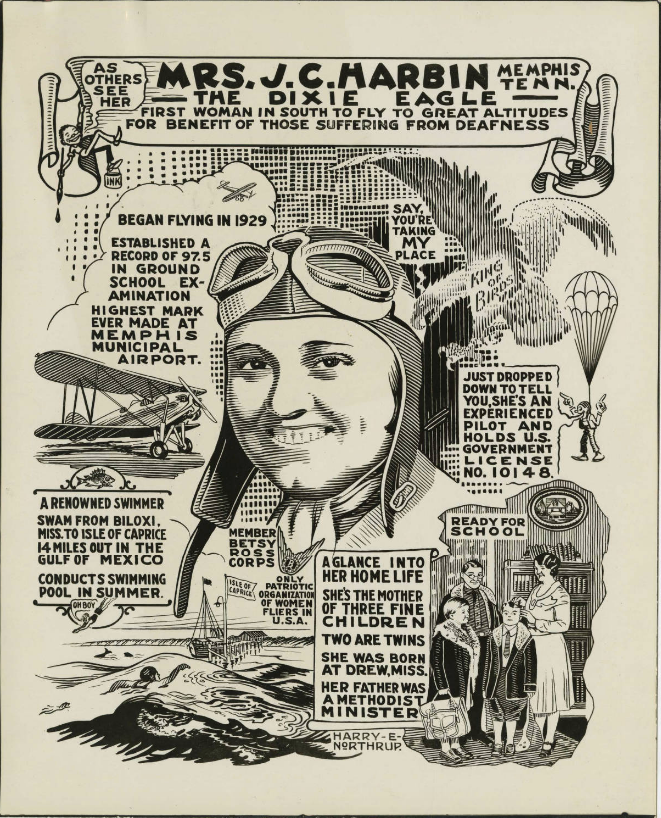
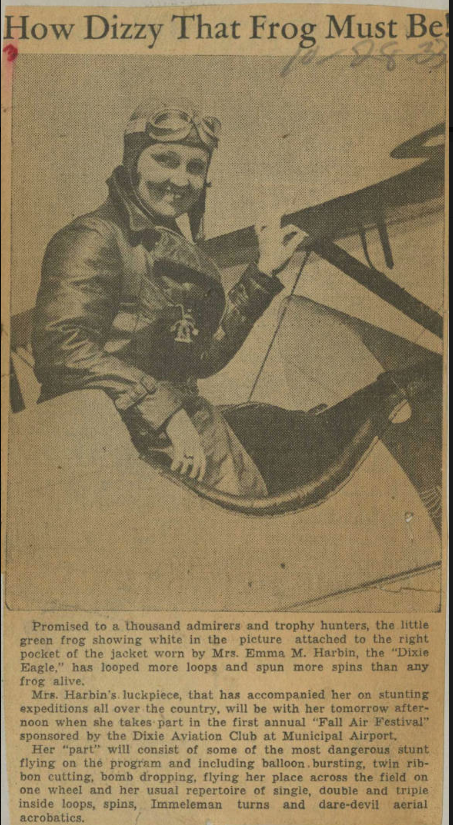
Posted By: Paul - Wed Nov 28, 2018 -
Comments (0)
Category: Daredevils, Stuntpeople and Thrillseekers, Regionalism, Air Travel and Airlines, Hotels, Twentieth Century
The Non-Smokers Inn
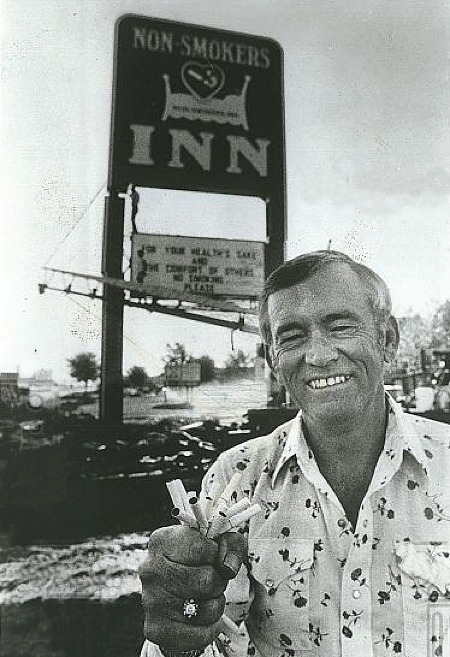
Lyndon Sanders opened the Non-Smokers Inn in 1981 in Dallas. At the time, it was the first exclusively non-smoking hotel in America. Actually it may have been the first to offer any rooms exclusively for non-smokers, period. I'm not sure. But as it turned out, he anticipated the non-smoking trend too well. From cnn.com:
It wasn't that the world had turned its back on his idea -- it was that the world had embraced it too thoroughly. Major hotels had started putting in nonsmoking floors, and advertising the fact; people who didn't smoke suddenly had no trouble finding a clean, fresh-smelling room. The Non-Smokers Inn, struggling for business, had to become something else and let smokers in, because the nonsmokers no longer had to look so hard for what they desired.
Posted By: Alex - Fri Mar 30, 2018 -
Comments (0)
Category: Hotels, Smoking and Tobacco, 1980s

| Who We Are |
|---|
| Alex Boese Alex is the creator and curator of the Museum of Hoaxes. He's also the author of various weird, non-fiction, science-themed books such as Elephants on Acid and Psychedelic Apes. Paul Di Filippo Paul has been paid to put weird ideas into fictional form for over thirty years, in his career as a noted science fiction writer. He has recently begun blogging on many curious topics with three fellow writers at The Inferior 4+1. Contact Us |




